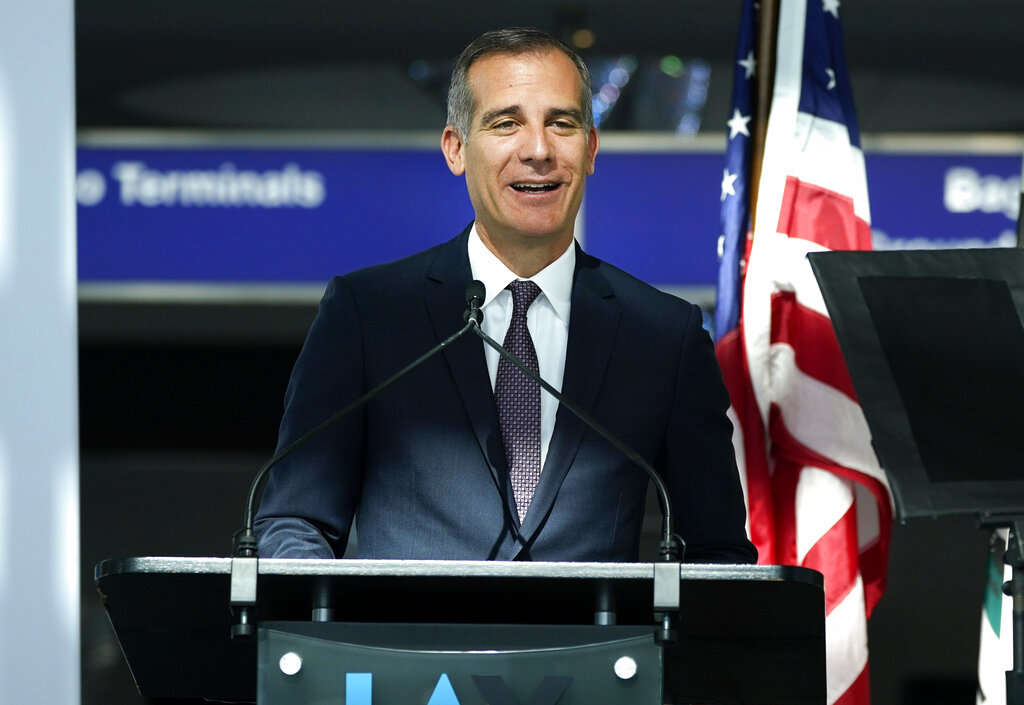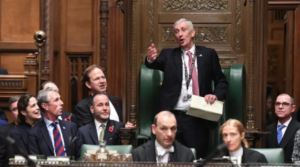
There is a weird paradox when it comes to Democratic mayors from major cities: while they enter office believing they are the next big thing in the party, they tend to leave office without any foreseeable prospects in national politics. As Los Angeles, the nation’s second largest city, is entrenching itself into a mayoral race, this phenomenon reveals itself.
Eric Garcetti, Los Angeles’ current mayor, is not eligible to run for a third term and he remains a complicated figure in his own city. His time as mayor has seen a city-wide housing crisis, increased traffic, and worsening economic inequality. These are issues that regularly impact real Angelenos and, as a result, he has earned a negative reputation in his own city.
It is clear, however, that Garcetti still has aspirations for higher office. It is also clear that he does not have the popularity to win any major office. Thus, he has accepted a position as the Ambassador to India within the Biden administration.
Working as an ambassador will simultaneously further his resume and, due to the relatively low profile nature of the position, allow the negative aspects of his tenure as mayor to dissipate in the collective memory. From there, he is hoping to have the necessary profile to run for higher office, whether it be state-wide or even the presidency.
There is one potential major flaw to this plan. Despite being formally nominated for the position over eight months ago, it appears that he will not be confirmed by the Senate anytime soon. Bluntly put, he does not have the necessary 50 votes in the Senate to be confirmed.
His confirmation has been fraught with allegations of workplace sexual harrassment against a top aide and, although he has been cleared, a report shows that he knew of the allegations before they became public. This has resulted in several fellow Democrats distancing themselves from him and his nomination.
How did the mayor of a major city like Los Angeles go from being a White House hopeful to a possibly failed ambassadorial candidate? Simple: he was the mayor of a major city.
Being the mayor of a large city is simply not an easy job. The mayor acts as the “face” of the city: they are the one who is responsible for everything that happens within the city’s borders. They become the person to blame when things go wrong and, in the case of Los Angeles, there is plenty to complain about.
The ongoing mayoral election in Los Angeles has drawn a slate of interesting candidates, all of whom propagate that they are the person who will fix the city. Candidates such as City Councilmembers Joe Buscaino and Kevin de Leon and City Attorney Mike Feuer are the traditional candidates: local politicians with the necessary resume to run for higher office within the city. These candidates are also behind in the most recent polling.
The two candidates who lead the race are Congresswoman Karen Bass and billionaire developer Rick Curoso. Bass is an interesting candidate because there is no apparent reason for her to leave Congress. In her last re-election, she won with over 85 percent of the vote. This is indicative of broad approval within her district. The only potential reason for her to run for mayor is if, like Garcetti, she has aspirations for higher office.
Should Representative Bass win the Mayoral race, what will stop her from falling into the same trap as Garcetti? Nothing. Garcetti was not the first mayor of Los Angeles to leave office without the necessary popularity to run for higher office. His predecessor, Antonio Villaraigosa, unsuccessfully ran for the Governorship of California, failing to get past the blanket primary round. He simply could not carry the Angeleno vote because they still remembered his failures to address homelessness and his highly publicized affair.
Unless Bass has a perfect record as mayor and actually fixes the problems Angelenos care the most about, she will ultimately face the same fate as her predecessors — a fate that is not just limited to Los Angeles’ mayors.
New York City is another example of how mayors go from believing they are the “next big thing” in their party to disgraced and obscured figures. Former Mayor Rudy Giuliani is the perfect starting point. His entire tenure was marred with free speech lawsuits and attacks against victims of police brutality. Even after his response to the horrific tragedy of 9/11 temporarily salvaged his legacy, it was not enough for him to win the Republican nomination for President in 2008. His campaign faltered without him winning a single state.
The following two mayors of New York City, Bill de Blasio and Michael Bloomberg, both sought the 2020 Democratic Presidential nomination and both fell short. De Blasio’s candidacy was largely laughed at because of his underwater approval ratings as mayor: if he could not fix New York’s problems, how could he be a qualified Presidential candidate?
Michael Bloomberg was a far more interesting candidate. As a billionaire, he largely funded his own campaign, spending hundreds of millions of dollars on ads. In the end, however, it was criticism of his stop and frisk policy during his tenure as mayor of New York that made him completely unmarketable to progressives.
Bloomberg acts as a perfect window into Rick Curoso’s mayoral campaign. They are both billionaires with histories of philanthropy who entered the world of elected politics late in life. While clearly not the best representations of the people, they have the necessary capital to fund their campaigns in a way most career politicians simply do not have.
Caruso’s aspirations for any office higher than mayor of Los Angeles are unknown, but it is looking increasingly likely that he may win the election. Is a billionaire what Los Angeles really needs? No. Los Angeles needs a mayor who is in it to make the city better for all individuals.
Many aspiring mayors of major cities such as Los Angeles and New York simply hope to use these positions as stepping stones for higher office, and because of this they do not truly care about their constituents — only their continued support. The people they are supposed to serve end up suffering as a result of these aspirations, and they must punish the officials who betray their interests by not allowing them to ascend to higher office. If one of these politicians were to actually solve some of the problems their city faces, they may be rewarded with actual prospects for higher office.
Nevertheless, as it currently stands, there is honestly no excellent option for mayor of Los Angeles



